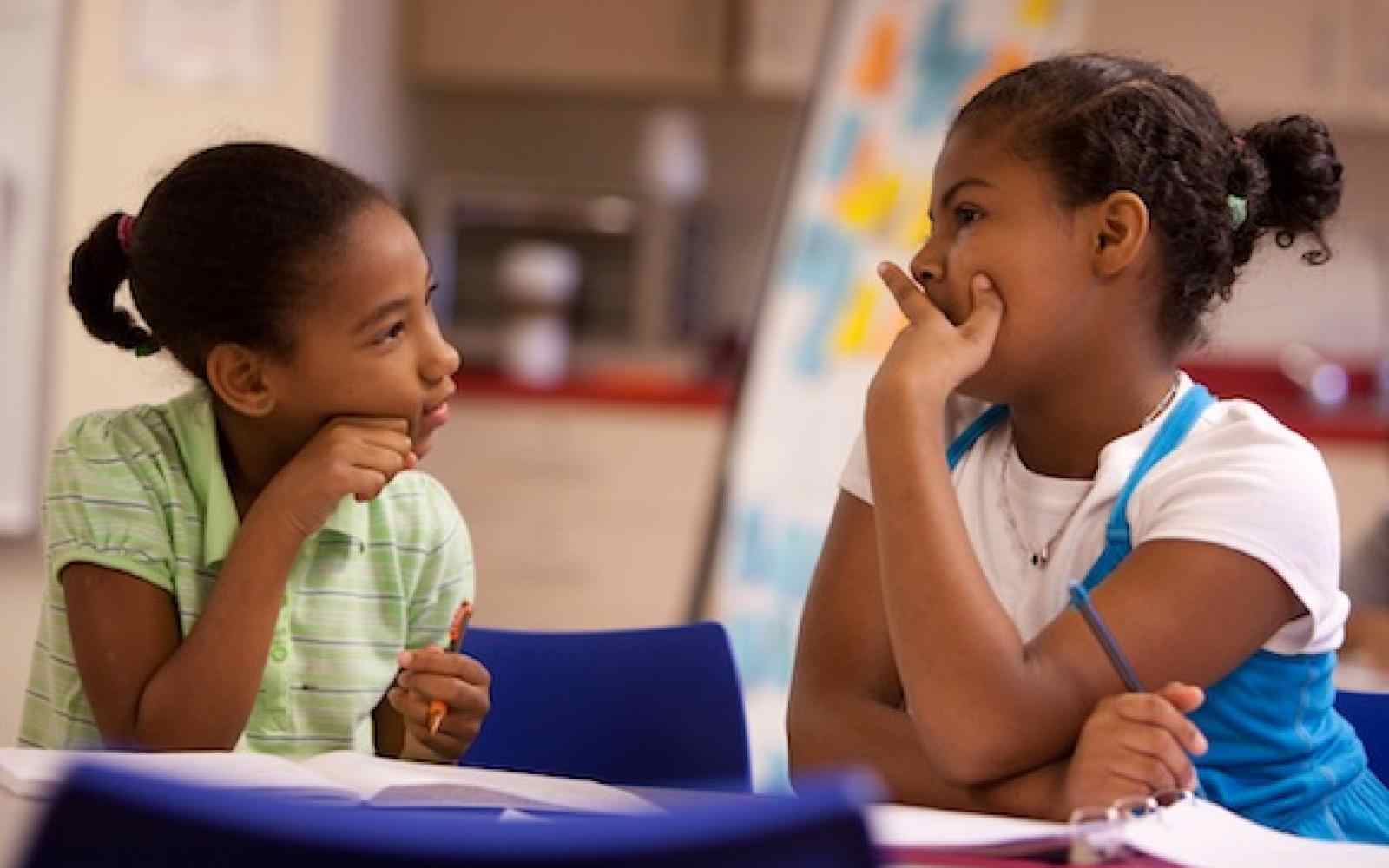...and a new tool that will help you build and practice it!
Gloria Perez smiled as she closed down the snack-stand after a busy day. The market survey she conducted turned out to be a good idea—she was really glad that she and her employees had the foresight to think like her customers. After all, it doesn’t make sense to sell cupcakes when the consumers want brownies.
Believe it or not, Gloria isn’t (yet) an independent businesswoman. She is student at Cunningham Elementary School in Austin, TX. Gloria is also an English language learner, and when she first arrived at Cunningham, she spoke very limited English.
Despite her initial struggles in the classroom, Gloria’s teachers saw potential and soon gave her the opportunity to join a team of students working at the school store. As a MicroSociety School, all students at Cunningham elementary have a job that mirrors real life government and business institutions.
With a friendly personality and strong sense of determination, Gloria climbed the ranks and quickly become the manager of the school store. Her responsibilities were real: She had to pay her employees, keep a full inventory, develop a strategy to understand and meet her customers’ demand. These experiences improved her spoken English and her math skills. Perhaps, most important of all, her time spent working with fellow “employees” and “customers,”, Gloria developed a strong sense of empathy.
Seldom does a day pass without a new discussion surrounding the shortcomings of the U.S education system. However, stories of success, innovation, and triumph like Gloria’s are not unique. Every day, thousands of teachers are developing new practices that empower their students to practice empathy. In a world that’s changing more-and-more everyday, where we don’t know what problems or opportunities the future holds, empathy is perhaps the most important skill that children can learn because it allows them to relate to and connect with people. In other words, empathy allows children to lead change for the good of all.
In this spirit, Ashoka created the Changemaker Schools Network to recognize elementary schools that do an outstanding job of cultivating empathy in kids. Representing 60 schools across the country, the educators in the Changemaker Schools Network have found effective ways across diverse contexts to train their students in this essential 21st century skill.
As diverse in geography, population, and school governance structure as the schools are, there are some common principles embedded in their teaching practices:
- All Changemaker Schools aim to treat every student as a leader. This commitment to putting children in charge is reflected in the curricula Changemaker Schools choose, their school culture practices, and how they design school systems like discipline policies and professional development.
- These schools value innovation, either by generating whole new ideas in education or combining existing ideas in new and innovative ways. For instance, Mount Vernon Presbyterian School in Atlanta created the Mount Vernon Institute for Innovation to research and disseminate the innovative practices its teachers develop at the school. Orchards Elementary School in Lewiston, Idaho built upon the “Leader in Me" model —teaching Stephen Covey’s Seven Habits of Highly Effective People not only to their students and teachers, but also to the students’ parents and even to their parents’ employers.
- They influence teaching beyond their own schools’ walls. For example, Lake Forest Park Elementary School in Lake Forest Park, WA piloted “Roots of Empathy,” a program founded by Ashoka Fellow Mary Gordon that cultivates empathy in students by bringing babies into the classroom as empathy “professors.” Lake Forest Park then played a pivotal role in helping every elementary school in the Shoreline School District to bring the empathy-building program to their schools.
Finally, all of the Changemaker Schools are led by Changemakers: a team of administrators, teachers, and parents who have high social end emotional intelligence, strong ethics, an entrepreneurial spirit, and confidence in their own ability to be an empathic leader. Educators in the network hail from diverse backgrounds; some are just beginning their teaching careers and others have taught for many years, and some knew that they would be a teacher their whole lives while others made a career change.
To celebrate all teachers, Ashoka is kicking the school year off with a tool to help every teacher identify the specific things that they already do to cultivate empathy in children, as well as identify ways they can grow this school year. Today, Ashoka launched an open online course called Activating Empathy: A Roadmap to Changemaker Classrooms. This free course will include a survey for teachers to identify their strengths and weaknesses in cultivating empathy in children, as well as a collection of resources from the Changemaker Schools Network and Ashoka’s broader Start Empathy network. Created by the teachers in the Changemaker Schools Network, this course is designed to fit teachers’ busy schedules and to direct teachers to resources that they need for their specific classroom needs. It is also a useful resource for any parent, after-school professional, or individual who wants to learn how to promote empathy in children.
We hope that you will join us in celebrating the work teachers do every day. Share Activating Empathy with the teachers you know, so that we can showcase the work they are already doing to make our world a more empathic place.
Editor’s Note: Names of children in this article have been changed for children’s privacy. Photo credit: The Center for Inspired Teaching
